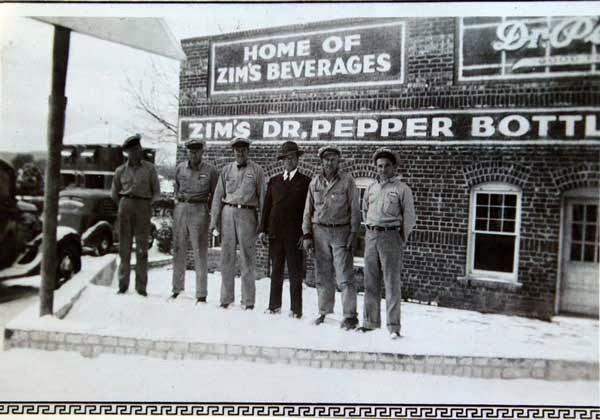It’s Important to Ask Questions
By Jeff Clark
It’s important to ask questions.
Up front.
To know your next partner before you head down a troubled
road.
I should’ve asked Barry about his affection for gravity.
About whether he felt fear.
Too late now.
I’ve been trying to get permission for some time to follow
the railroad right-of-way northeast from Ranger down the steep grade to Strawn.
They’re replacing the old cross ties through this part of the world with
concrete cross ties. The first rail worker we saw gave us the go ahead, just
stay away from the tracks.
This is rough Wiles
Canyon
It’s been hanging on tight to these hillsides with
white-knuckled fingertips ever since. If you want to see the original wooden
trestle, it’s on the top of page 14 in Alfred Rogers’ wonderful “Images of America –
Ranger” book.
Still, the T & P Railroad story is old news. We’re here
to search for U.S. 1, the dirt “highway” that climbed this canyon disguised as
an old wagon road. This U.
S. 1 route was abandoned before 1921,
perhaps earlier than 1919. This was before the Bankhead Highway that several in our
network remember.
Two crossings under the railroad are the only “for sure”
landmarks we can locate, to make sure we unwind this forgotten story from an
unshakable We’re Sure It’s True core.
I met Barry Franklin on the Ranger end of this gauntlet. I
should’ve grasped my predicament when my new friend rolls up with a death-defying,
high-powered Jeep, custom designed to thwart the most basic laws of physics
(gravity, up belongs on top of down, impact…you get the picture).
The T & P Railroad built its high wooden trestle across
the Russell Creek Gorge, the one that carved deep Wiles Canyon
Read: People with a (logical) fear (concern) of (unspeakably)
high (cursed) places (nightmares) should (forget it) content themselves (turn
back) with Google Earth (get over it and move on).
Barry promised to drive slowly. He smiled when he said it.
My brain believed him.
We saw the remains of the Sinclair Oilfield Camp through a
high game fence to the south. We saw remnants of old electric lines with glass
insulators still intact. We saw shattered rail road ties and broken-to-pieces
poles that my imagination believes carried telegraph lines and perhaps the
nefarious Jay Gould himself.
It coulda happened.
No camera can do justice to the view down the canyon, the
snake-winding tracks lowering gracefully toward the Strawn side of its journey.
If there were a 500 foot tall flagpole at Mary’s Café, I coulda seen it from the
top. I took several photos looking down the canyon, but the immensity of this
Big Country horizon defied my Nikon buddy its victory. Think Grand
Canyon , smaller, greener, friendlier.
We motored down a path next to the right of way. We stopped
in an abandoned rock quarry. We approached the site of the trestle and stopped.
I wanted to check it out on foot. Barry politely turned off his anxious Big Jeep
Monster and allowed me to disembark. Allowed me to search along the ground for
courage.
This is me looking down. Straight down. No longer in the
Jeep.
I will blur the rest of the story. Let the photos speak for
themselves. I walked the most narrow stretch of our journey. If my friend
laughed, he did it outside my presence. We drove straight up a couple of times.
We felt gravity grab hold of Mr. Jeep and roll “up or down?” around in its
mischievous hand like an white ivory dice. We didn’t roll over. Almost doesn’t
count, Barry told me.
I met a tiger. I saw an Indian head. I got
clues I’m not ready to announce. I stared straight down several trillion feet
and remembered what immigrant workers must have seen when they cut this path
through what was then and what is now still very much a slash of wilderness.
I saw an old road bed. Or maybe nothing. That’s the beauty
of trips like this.
We’re coming back, heading toward Ranger. We’re almost back
to the pickup and flat ground. Barry says in a calm steady voice, “You know, I
never feel fear.”
I’m looking for my seatbelt release. For how far down til impact
if I jump.
He says, “Nothing weird, just I’m not wired like that.” Barry’s
done motocross and four-wheeling at their most competitive national levels. “Fear
just never hits me.”
He answered the question I failed to ask.
Answered it honestly. Wished more people were like him.
Obviously I made it back. Hopefully it’s clear how much I
appreciate this man taking me past the place I would’ve stopped to get the
story.
Much of the time I prefer to walk on these adventures alone.
It’s hard to hear what the land wants to say otherwise. Still, there are a few
people who get it.
It was nice to approach an unknown place with someone at my
side. Not a fear thing, as much as a perspective thing. Sometimes old roads,
aren’t.
The route of U.
S. 1 is known, at least in a broad sense. I
believe by summer, given the good graces of some shiny now-locked gates up and
down this chiseled terrain, that this man’s Jeep will drive that old path once again.








